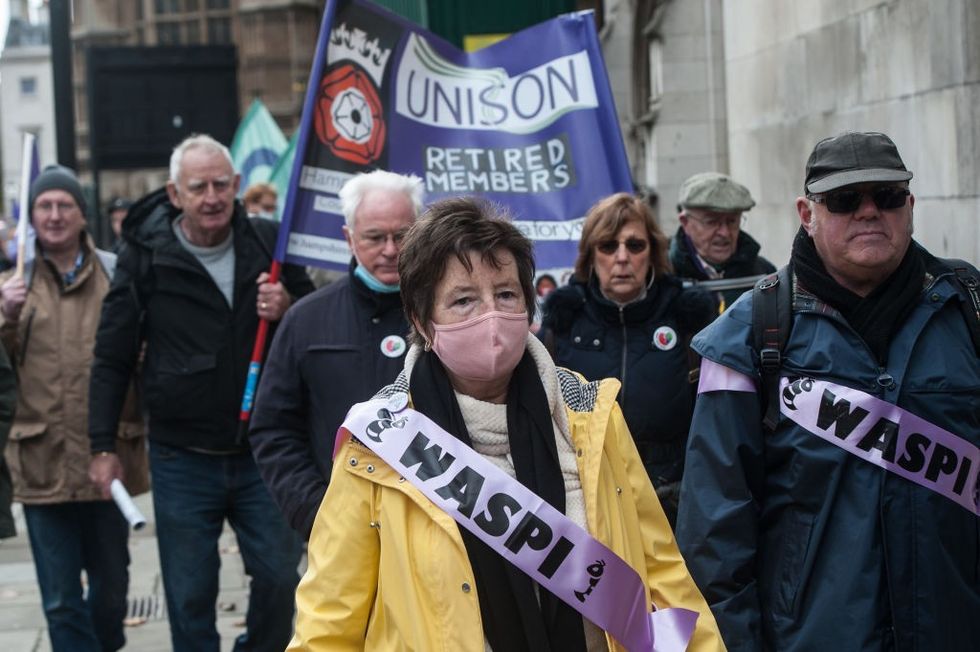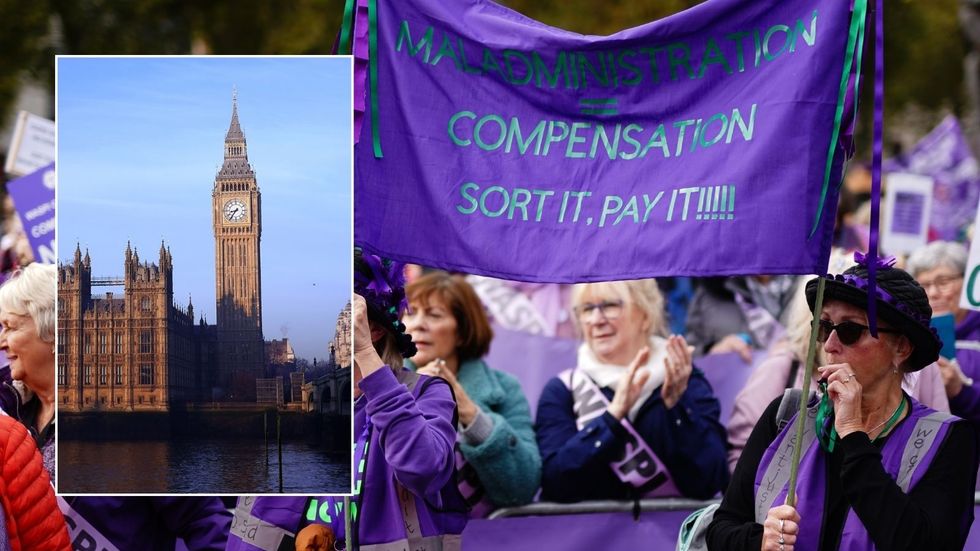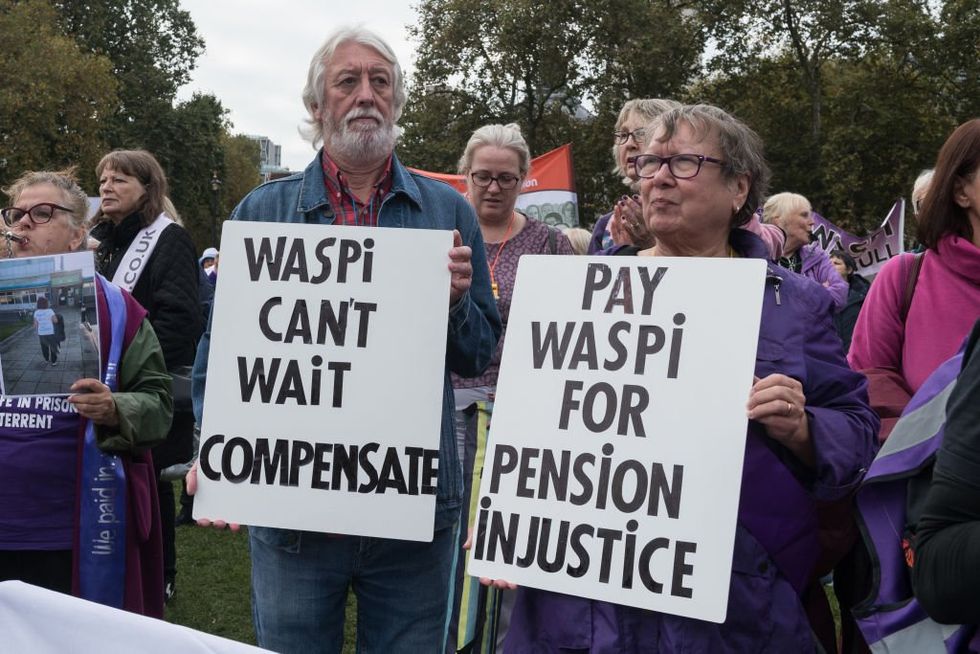The Government has announced it will reconsider its refusal to compensate women affected by state pension age changes, Work and Pensions Secretary Pat McFadden has confirmed.
His statement came in the Commons yesterday, just weeks before a High Court hearing that could reshape a campaign that has lasted for ten years.
Here is how the Women Against State Pension Inequality (Waspi) movement has unfolded to this point.
Timeline
1995–2010: The policy shift
Legislation was introduced to equalise the state pension age for men and women, gradually raising it from 60 to 65, and later to 66.
Many women born in the 1950s said they were not properly informed and only discovered the changes as they approached retirement.
October 2015: Waspi is formed
A parliamentary petition launched the Women Against State Pension Inequality campaign.
The group represents 3.6 million women born between April 1950 and April 1960.
2016: Rapid growth and political momentum
In April, local Waspi groups were set up across the country.
By May, an All-Party Parliamentary Group (APPG) was established, attracting 120 MPs on its first day.
In June, around 2,500 women took part in a London demonstration with cross-party MP support.
In October, 87 MPs presented 198 public petitions in the Commons in a 25-minute session.
Waspi Ltd was created to enable legal representation, and a crowdfunding appeal raised £100,000 in under three weeks.

The Government has been accused of dragging its feet over Waspi issues
|
GETTY2017: Election influence
Waspi secured support pledges from 483 parliamentary candidates, with 190 elected to office.
The campaign became a recognised force in national pension policy debate.
July 2018: Ombudsman investigation begins
The Parliamentary and Health Service Ombudsman agreed to investigate claims of maladministration by the Department for Work and Pensions (DWP).
 MPs have launched an inquiry into Waspi women “injustice” | GETTY
MPs have launched an inquiry into Waspi women “injustice” | GETTY July 2021–May 2023: Findings and legal challenge
In July 2021, Stage 1 of the investigation confirmed DWP maladministration.
In December 2022, Stage 2 and the provisional Stage 3 reports recommended compensation.
In May 2023, Waspi challenged parts of the report, leading the Ombudsman to revise several sections.
March 2024: Final report published
The Ombudsman concluded that maladministration caused injustice requiring compensation.
Payments between £1,000 and £2,950 per woman were recommended.
The report was laid before Parliament due to concerns over DWP compliance.
December 2024: Government refuses compensation
Then Work and Pensions Secretary Liz Kendall accepted that maladministration occurred but ruled out redress.
She said: “Given that the vast majority of people did know about these changes, I didn’t judge that it would be the best use of taxpayers’ money to pay an expensive compensation bill.”
Chancellor Rachel Reeves supported the decision, citing Government research showing “considerable awareness” of the changes.
February–June 2025: Legal action escalates
Waspi launched judicial review proceedings.
More than £125,000 was raised through crowdfunding in a single week.
The High Court granted permission for a review in June.
October–November 2025: Renewed political pressure
Nearly 100 MPs attended a Waspi drop-in event at Parliament.
Public fundraising passed £250,000.
Campaigners say almost 400,000 affected women have died since the dispute began.
Treasury savings from delayed pensions are estimated at more than £5.1billion.
December 2025: Judicial review at High Court
The High Court will hear Waspi’s case on December 9 and 10.
The group argues that the DWP’s decision was unlawful and based on flawed reasoning.
 Waspi protestors holding placards | GETTY
Waspi protestors holding placards | GETTY
Latest development: Government reconsiders
On November 11, 2025, Work and Pensions Secretary Pat McFadden told MPs: “Retaking this decision should not be taken as an indication that the Government will necessarily decide that it should award financial redress.”
He said fresh evidence not available to Liz Kendall must now be assessed before a new decision is made.
Parliament will be updated once the review concludes.
The Ombudsman’s recommended compensation totals £10.5billion.
For affected women, the campaign is about fairness, dignity and official recognition.
The outcome of December’s High Court hearing could set a precedent for how the Government communicates major policy changes in the future.
Angela Madden, Chair of Women Against State Pension Inequality (WASPI), said:
“WASPI is challenging the Government’s decision last December, made after the longest-running Parliamentary Ombudsman investigation.
“Liz Kendall told Parliament that most women knew about the pension age changes and that letters weren’t as significant as the Ombudsman claimed—complete rubbish and a gaslighting denial of our lived experience.
She said that the Government appeared to accept that one of its previously stated “facts” was incorrect, after it emerged that a DWP-commissioned report contradicting the claim had been withheld.
“That’s scandalous, especially given it has spent months defending its position as hopeless.”
Ms Madden said that the reconsideration vindicates what WASPI has “said all along”, that the Government’s decision was “fundamentally flawed”.
“What it means for our case is more complex, and we’re reviewing our options with our lawyers.”
